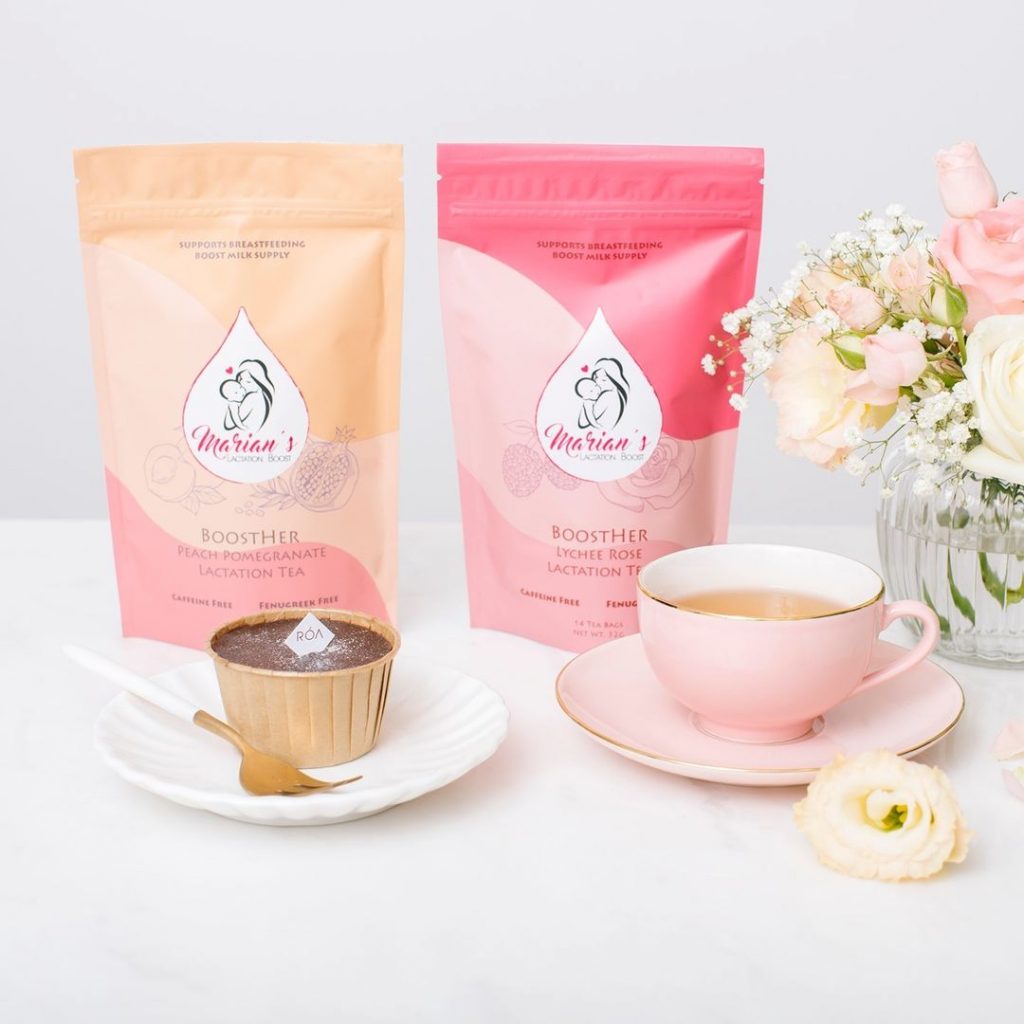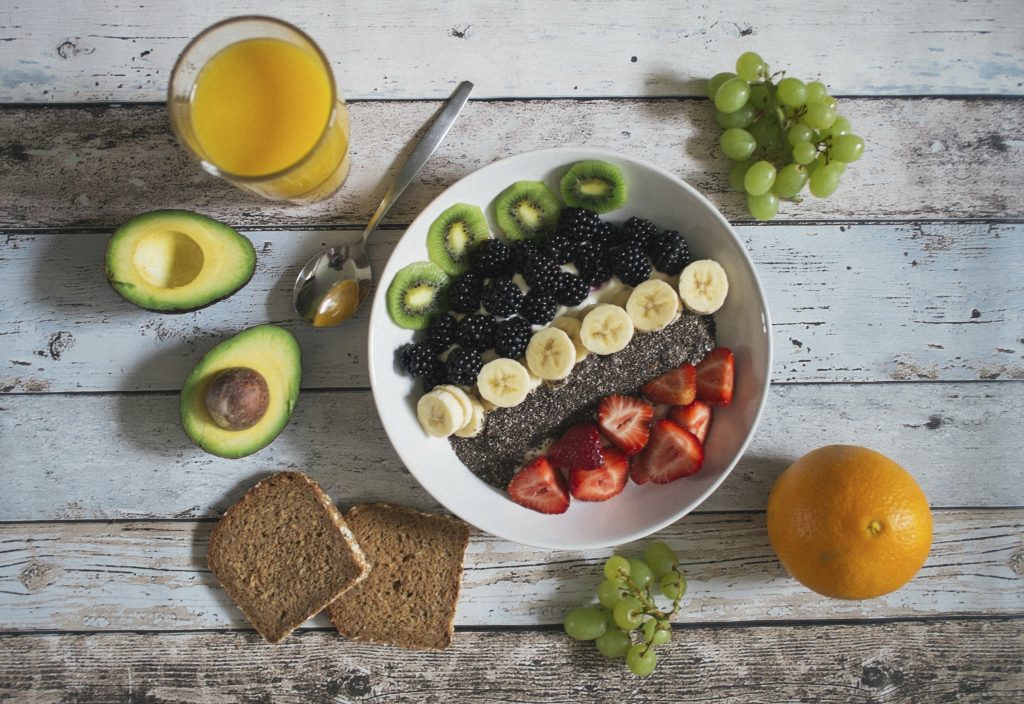Wondering what the best breastfeeding nutrition diet is for yourself and your newborn? Dr Astrid Smeets, the Senior Clinical and Medical Affairs Manager at Mother & Child Care at Philips, dispels some breastfeeding nutrition myths.
Myth 1: Galactagogues can definitely boost milk supply.

Dr Smeets says that galactagogues can “stimulate milk production, but it is of importance to take the right amount and minimise the risks. These products are best used under supervision of a healthcare professional.” Such galactagogues might include fenugreek, Domperidone, or Metoclopramide. For example, take fenugreek four times a day, with teaspoons of fenugreek seeds in a glass of hot water, or as capsules to improve milk supply.
While the US FDA deems fenugreek to be generally safe, taking this excessively may cause mums to have loose stools. Otherwise, fenugreek may produce a maple syrup smell in your sweat and urine or lower your blood sugar. Flaxseed can also pose problems with mums with digestive issues. While the studies on lactation cookies are still ongoing, these healthy snacks can help some mums increase their milk supply.
Increasing or Maintaining Milk Supply
Dr Astrid Smeets says that it is “most important to get sufficient energy, nutrients and fluids. Foods that are good sources to compensate for the additional needs are nuts, wholegrain products and water.” She adds that 1 to 1.5 litres of water per day is sufficient.
However, the best way to make more milk is to pump or nurse more often. Furthermore, consult your healthcare provider or lactation consultant for additional help. Additionally, try to get as much nightly sleep as you can, supplementing with a nap during the day if possible.
Motherswork Recommends: Lactation Cookies: Marian Lactation Boost, Singapore Lactation Bakes and Cookie4Milk ($19.90 to $36.90) and Breast Pumps ($34.90 to $899
Myth 2: Avoid foods that can give babies tummy cramps
Babies can sometimes get tummy cramps, and seem to be fussy and in distress for regular intervals in a day or week. Aside from making them uncomfortable, it could also affect their sleep as well. Some conditions babies might have include colic, constipation, gas, reflux or lactose intolerance, viral infections in the stomach, diarrhoea or nausea. Thankfully, it’s unlikely that the mum’s diet has caused tummy cramps.
Dr Smeets explains, “There is no evidence that specific foods can cause cramps in babies. And the effect of mothers’ diets on the quality of their breast milk is limited. Nature makes sure that the breast milk contains enough nutrients by using mothers’ body-stores of minerals and vitamins.” Hence, mums need not avoid spicy, cold or raw foods when breastfeeding. Instead, mums’ diets “can influence the colour, odour and taste of the breast milk. This is a way for the baby to get used to the taste of solid foods via the mother,” she says.
Ways to Ease Tummy Cramps
Ease their tummy cramps and discomfort by bicycling their legs, and burping them more frequently. Furthermore, mums who are supplementing with formula can try more tummy-friendly formulas. For mums with oversupply, their babies might be ingesting more air as they swallow milk. Call the paediatrician if your baby has a high fever of 38°C, diarrhoea lasting more than 48 hours, non stop screaming or extreme fatigue.
Myth 3: It’s okay to try diets (e.g., Paleo, Keto or intermittent fasting) while breastfeeding.

Dr Smeets says, “I would not recommend these diets as they can make it harder for mothers to eat enough nutrients.” Also, this may be difficult to combine with being a new mum. Rather, Dr Smeets advises, “Focus should be on taking good care of your body as a mum so you can take good care of your baby.”
Breastfeeding Nutrition Guidelines
After giving birth, mums wanting to shed some postpartum weight should have a healthy diet. This, Dr Smeets says, should include “lots of vegetables, fruits, nuts, and sufficient fats.” Healthy weight loss, she adds, is “losing not more than 500 to 1,000g a week.” In terms of macronutrients, mums should divide them up in the same way the general population would. For instance, they should eat around 20 to 40 per cent fats, 10 to 20 percent protein, and the rest carbohydrates. It’s recommended to eat a healthy diet of about 2,500 calories. Aside from getting adequate nutrients, check with your healthcare provider on what other supplements they should continue to take.
Myth 4: Mums should abstain from drinking alcohol.
Dr Smeets explains, “For breastfeeding mums it is safest not to drink any alcohol at all. Alcohol will go into the breastmilk and can harm babies’ developments, and can also slow down the milk production.” However, mums can have a standard glass shortly after breastfeeding or expressing, then waiting three hours before the next feed or pumping. After this, Dr Smeets advises, “all alcohol has been broken down and the breast milk is safe.”
Myth 5: Mums should abstain from drinking coffee.
As for caffeine, Dr Smeets suggests that “caffeine can make a baby restless. It is therefore best for mothers to drink not more than one cup of coffee per day.” Excessive caffeine intake of more than 10 cups of coffee has shown to cause jitteriness, poor sleep patterns and fussiness in infants. Mums can safely intake 300 to 500mg daily. However, a lower intake is preferable for mums with preterm and younger newborn infants. Drinking more than 450ml of coffee may also decrease iron concentrations in breast milk..
About Dr Astrid Postma-Smeets

Education and Early Work
Astrid Postma-Smeets studied Nutrition and Health at Wageningen University. She obtained her PhD at the University of Maastricht. Her research focused on food intake regulation. Subsequently she worked at the Dutch Obesity Clinic. From 2010 until 2020 Dr Smeets worked as an expert on nutrition and health at the Netherlands Nutrition Centre. Her main topics of expertise were nutrition and health, overweight and obesity, and nutrition during the first 1,000 days of life. She was a member of the Committee on nutritional recommendations for pregnant women of the Dutch Health Council. In addition, she is one of the authors of the Wheel of Five Dutch Food Based Dietary Guidelines 2016. Furthermore, she was the Netherlands Nutrition Centre’s spokesperson on nutrition and health and is experienced in new and traditional media. Before joining Philips, she had her own consultancy on nutrition, communication, marketing and training.
Joining Philips
Dr Smeets joined Philips following 10 years at the Netherlands Nutrition Centre, where she has been focused on interpreting scientific research in the field of nutrition and health into information and advice for targeted audiences. With detailed experience in pregnancy and infant and child nutrition Dr Astrid Smeets has worked with leading KOL’s and governing bodies to deliver materials, tools, campaigns, e-learnings, videos, and training whilst leading professional workshops in the field. With a rich background in research Dr Smeets brings a wealth of expertise to the team and will help guide our innovation, marketing and communications on an international basis to become even more relevant to Healthcare Professionals.
The Truth About Prenatal Nutrition
Currently pregnant? Join us for an hour-long webinar on 16 June at 8 to 9pm with Dr Astrid Smeets to learn more about prenatal nutrition to give your unborn child the best nutrition. Register your interest here.
Relevant Reads: Breastfeeding Nutrition



